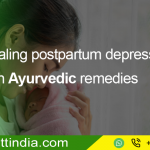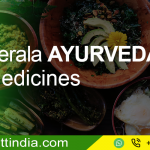For many women, getting pregnant isn’t always as simple as they hope. Various factors, such as age, health conditions, lifestyle choices, and diet, can influence fertility. If you’re planning to conceive, focusing on what you eat could make a significant difference. A well-balanced fertility diet can help improve reproductive health, regulate hormones, and increase the chances of a healthy pregnancy.
Why Diet Matters for Fertility
Before diving into a detailed fertility diet chart, it’s important to understand why diet plays a crucial role in fertility [Treatment for Infertility]. The foods you consume directly impact the health of your reproductive system. Nutrients in your diet help regulate ovulation, improve egg quality, and maintain a healthy menstrual cycle. On the other hand, poor eating habits may lead to hormone imbalances, weight gain, and issues with ovulation—all of which can reduce fertility .
A well-rounded fertility diet emphasizes nutrient-dense foods that support overall health, including reproductive health.
Key Nutrients for Fertility
Here are the essential nutrients that should be part of your fertility diet:
Folic Acid
Folic acid is a B vitamin needed for DNA synthesis and cell division. It helps prevent birth defects and supports healthy egg development. Women trying to conceive should take at least 400-600 micrograms of folic acid daily, either through supplements or fortified foods.
Iron
Iron is essential for oxygen transport in the body and is vital for ovulation. Iron deficiency can lead to irregular periods and may affect fertility. Foods like lean red meat, spinach, and lentils are rich in iron.
Omega-3 Fatty Acids
These healthy fats are important for reducing inflammation, regulating hormones, and improving egg quality. Walnuts, chia seeds, flaxseeds, and fatty seafood like salmon are good sources of omega-3 fatty acids.
Antioxidants
Antioxidants, such as vitamins C and E, zinc, and selenium, protect eggs from free radical damage. Nuts, fruits, and vegetables are rich sources of these nutrients.
Vitamin D
Vitamin D helps regulate calcium and phosphate levels, supporting bone health and immune function. It’s also linked to improved ovarian function. Sunlight is the best source of vitamin D, but fortified foods and supplements can also help.
Protein
Protein is necessary for building and repairing tissues, and it’s important to include both plant-based and animal-based protein in your diet. Studies show that women who consume more plant protein may have higher fertility rates.
Zinc
Zinc plays a role in hormone production and ovulation. Good sources of zinc include oysters, beans, and whole grains.
Complex Carbohydrates
Complex carbohydrates found in whole grains, fruits, and vegetables are crucial for maintaining healthy blood sugar levels and hormonal balance. Simple carbs, like refined sugars, can cause insulin resistance, which may negatively affect fertility.
Calcium
Calcium is important for reproductive health and supports the development of a healthy embryo. Almonds, leafy greens, and dairy products are excellent providers of calcium.
Foods to Include in a Fertility Diet Chart
The following food groups should be included in your daily diet if you’re trying to boost fertility:
Whole Grains
Whole grains are high in fiber, vitamins, and minerals. Examples of these include brown rice, quinoa, oats, and whole wheat bread. They help regulate blood sugar levels, which is important for hormone balance.
Leafy Green Vegetables
Spinach, kale, arugula, and broccoli are excellent sources of iron, calcium, and folic acid. These nutrients are essential for preparing the body for pregnancy and supporting overall reproductive health.
Lean Proteins
Lean sources of protein, such as chicken, turkey, eggs, and fish, provide the body with the amino acids it needs to support egg development and hormone production. Fish rich in omega-3s, like salmon, sardines, and mackerel, are especially beneficial.
Nuts and Seeds
Nuts and seeds like almonds, walnuts, chia seeds, and flaxseeds are loaded with healthy fats, antioxidants, and protein. These foods support hormonal balance and improve egg quality.
Dairy Products
Yogurt, milk, and cheese provide a good amount of calcium and vitamin D, which are important for fertility. Full-fat dairy products may also be beneficial for women trying to conceive.
Berries
Blueberries, strawberries, and raspberries are packed with antioxidants, which protect your eggs from damage caused by oxidative stress. They also provide a good source of fiber and vitamins.
Healthy Fats
Healthy fats are vital for hormonal health and fertility. Avocados, olive oil, and fatty fish provide monounsaturated fats and omega-3s, which help reduce inflammation and support reproductive function.
Legumes
Beans, lentils, and chickpeas are excellent plant-based protein sources that also provide fiber and folate. These nutrients help regulate hormones and ensure a healthy menstrual cycle.
Citrus Fruits
Oranges, lemons, and grapefruits are high in vitamin C, which boosts immunity and improves iron absorption. Vitamin C also acts as an antioxidant, helping to protect reproductive cells.
Foods to Avoid for Better Fertility
Similar to how some foods might increase fertility, others can decrease it. Here’s a list of foods to avoid or minimize:
Trans Fats
Trans fats, found in processed foods, margarine, and fried foods, can increase inflammation and insulin resistance, negatively affecting fertility. Always read food labels, and stay away from anything that contains partly hydrogenated oils.
Refined Sugars
Foods high in refined sugars, such as candies, pastries, and sugary drinks, can lead to spikes in blood sugar and insulin levels, which may disrupt ovulation.
Caffeine
While moderate caffeine consumption (up to 200 mg per day) is considered safe, excessive caffeine can affect ovulation and reduce your chances of conceiving. Reduce your intake of soda, tea, and coffee.
Alcohol
Alcohol can impair fertility and increase the risk of miscarriage. If you’re attempting to conceive, it’s advisable to minimize or stay away from alcohol completely.
Processed Meats
Processed meats like sausages, bacon, and deli meats contain high levels of unhealthy fats, sodium, and preservatives. These may have a negative impact on fertility and overall health.
Soy Products
While moderate consumption of soy is fine, too much soy can affect estrogen levels and disrupt hormonal balance. If you consume soy, opt for fermented soy products like miso or tempeh.
Additional Lifestyle Tips for Enhancing Fertility
Aside from following a fertility diet, there are other lifestyle changes you can make to increase your chances of conception:
Maintain a Healthy Weight
Being either underweight or overweight can affect hormone levels and reduce fertility. Aim to maintain a healthy weight through regular exercise and a balanced diet.
Stay Hydrated
Drink plenty of water throughout the day to support your overall health and help regulate your body’s functions.
Manage Stress
Chronic stress can interfere with ovulation and hormone production. Practice stress-reducing techniques like yoga, meditation, or deep breathing.
Get Enough Sleep
Proper rest is essential for maintaining healthy hormone levels. Aim for 7-8 hours of sleep each night to support your body’s fertility processes.
Avoid Smoking
Smoking is known to reduce fertility in both men and women. If you smoke, it’s important to quit as soon as possible to improve your chances of conceiving.
Empowering Your Fertility Journey
A well-balanced fertility diet can play a crucial role in boosting your chances of conception. By incorporating nutrient-rich foods such as leafy greens, whole grains, healthy fats, and lean proteins, you can support your reproductive health and improve your chances of becoming pregnant. Combine this fertility diet with a healthy lifestyle, including regular exercise, adequate sleep, and stress management, to further enhance your fertility journey.








